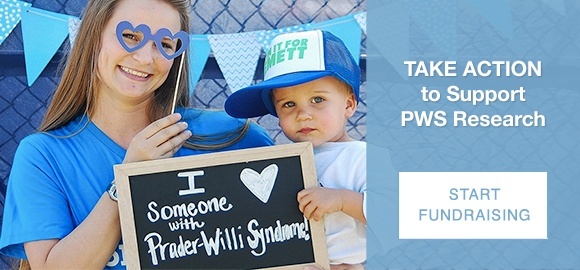 As the COVID-19 pandemic continues to evolve, researchers are working hard to understand how the virus affects individuals with Prader-Willi syndrome (PWS). A recent study by FPWR Grant Recipient Dr. James Luccarelli and colleagues from the Massachusetts General Hospital/Harvard Medical School, as well as Dr. Theresa Strong from FPWR, provides new insights into how COVID-19 impacts people with PWS.
As the COVID-19 pandemic continues to evolve, researchers are working hard to understand how the virus affects individuals with Prader-Willi syndrome (PWS). A recent study by FPWR Grant Recipient Dr. James Luccarelli and colleagues from the Massachusetts General Hospital/Harvard Medical School, as well as Dr. Theresa Strong from FPWR, provides new insights into how COVID-19 impacts people with PWS.
The study, titled "Inpatient Hospitalizations for COVID-19 Among Patients with Prader-Willi Syndrome: A National Inpatient Sample Analysis," posted preprint reveals important findings that every family affected by PWS should be aware of.
Understanding the Study
Prader-Willi syndrome is a complex genetic disorder that affects many parts of the body, particularly the respiratory system. Given that individuals with PWS often have underlying respiratory issues, obesity, and other health challenges, it’s reasonable to think they might be at higher risk for severe complications if they contract COVID-19. Surprisingly, early surveys suggested that people with PWS might not be as severely affected by COVID-19 as initially expected. However, those surveys were limited in size and required active participation from families, and so may not capture the full spectrum of COVID-19 illness.
This study addressed these limitations by utilizing data from the National Inpatient Sample (NIS), which provides information about most inpatient hospitalizations in the United States. This study analyzed inpatient hospitalizations for COVID-19 in 2020 and 2021 and compared hospital outcomes for individuals with and without PWS. In all, the study compared 295 hospitalizations for individuals with PWS to more than 4,000,000 hospitalizations in individuals without PWS.
Key Findings
The study paints a clear picture: individuals with PWS who contracted COVID-19 and required inpatient hospital care had significantly more severe outcomes compared to those without PWS. Here are some of the key takeaways:
- Younger Age at Time of Hospitalization: individuals with PWS hospitalized for COVID-19 were much younger than non-PWS patients, with a median age of just 33 years compared to 63 years for non-PWS patients.
- Longer Hospital Stays: On average, PWS patients stayed 7.43 days longer in the hospital than non-PWS patients, and their hospital bills were significantly higher—by more than $80,000.
- Increased Severity: Patients with PWS had a higher likelihood of needing mechanical ventilation (odds ratio of 1.79) and a higher likelihood of dying during hospitalization (odds ratio 1.67) compared to those without PWS.
What Does This Mean for Families?
These findings highlight the need for continued vigilance and protective measures to keep individuals with PWS safe from COVID-19. The study shows that PWS patients who are hospitalized for COVID-19 are at a much higher risk of severe outcomes compared to individuals without PWS. For families and caregivers of individuals with PWS, this underscores the importance of:
1. Staying Up to Date on Vaccinations: Vaccination remains one of the most effective ways to protect against severe complications from COVID-19. Ensuring that your loved one is fully vaccinated and boosted is crucial.
2. Following Preventive Measures: Although pandemic restrictions have eased, individuals with PWS may still be at high risk. It’s essential to continue following public health recommendations, including mask wearing in high-risk settings, social distancing, and maintaining good hand hygiene.
3. Monitoring Health Closely: Since individuals with PWS are at higher risk for complications, it’s important to monitor their health closely, particularly for respiratory symptoms. Early medical intervention can make a significant difference in outcomes.
4. Advocating for Specialized Care: The study points out that individuals with PWS face unique challenges when hospitalized with COVID-19. Families should advocate for care that takes into account the specific needs of PWS patients.
Looking Forward: The Importance of Continued Research
While this study provides valuable insights into the impact of COVID-19 on individuals with PWS, it also highlights the need for ongoing research. The COVID-19 virus is constantly evolving, and the long-term effects on people with PWS are still not fully understood. Additionally, the study only covers data from 2020 and 2021, before the emergence of new variants and wider vaccine distribution. Future research will be critical to understanding how changes in the virus and population immunity affect people with PWS.







